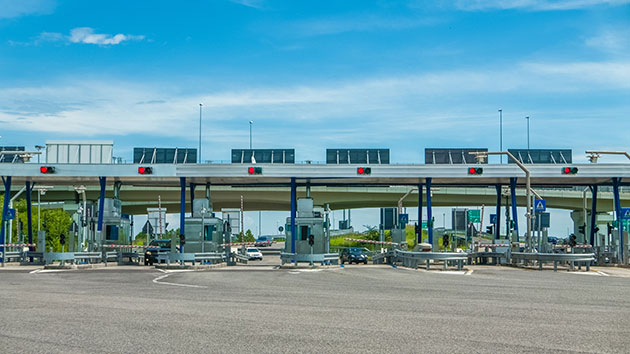Pay the toll—or pay the price.
That’s the ultimatum the Port Authority of New York and New Jersey hopes to lay down on drivers taking advantage of unmanned toll booths along the New Jersey Turnpike and Garden State Parkway.
The interstate agency is in discussions with the New Jersey Motor Vehicle Commission (MVC) to establish a rule that would suspend the registration of “chronic” toll cheats—or those who skip out on paying five or more tolls over the course of 18 months.
The tactic is currently in place in New York, where it helped the state reap $112,000 of tolls and fees owed last year alone. All told, the Empire State issued 297 requests to cancel the registration of chronic violators in 2016.
Following that program’s success, the Port Authority—which oversees toll collection on the two major Garden State roadways—is hoping to expand the program into New Jersey.
The problem the agency hopes to fix typically starts at the “E-Z Pass Only” toll booths along the roadways.
Instead of offering a human with the ability to ask for cash—and keep drivers honest—the unmanned kiosks use laser technology to scan a device in the car, automatically deducting the appropriate toll amount from a connected bank account. But many have tried to game the system, running through the E-Z Pass lanes with no device in their car and no intention of paying.
The booths are equipped to take photos of offending license plates, and violators are later sent a bill in the mail for the toll, but many shirk the responsibility of ponying up for that debt, as well.
And with the high volume of drivers utilizing the highways, those small amounts add up quickly.
New Jersey reported a net loss of $31 million from unpaid tolls in 2015. (Comparatively, neighboring Pennsylvania noted a $37 million loss from unpaid tolls over the same time period.)
The widespread problem has many states nervous—and ready to band together in the fight for recouped fees.
Pushes for more toll industry standardization have led to a number of interstate agreements, including one between Massachusetts, Maine, and New Hampshire struck last year. The deal allows the offending driver’s home state DMV to cancel the violator’s registration from across the border. It resulted in the collection of nearly 70% of all tolls owed, bringing in a $100,000 windfall for the alliance in 2016.
That precedent may be good news for states like New Jersey, which sees out-of-state license plates on upwards of 25% of its highway travelers.
Still, the proposal arises at a precarious time for toll collection in general. A sizeable movement within the industry has pushed for getting rid of manned tolls all together, arguing instead that roadways should rely entirely upon electronic toll collection systems like E-Z Pass.
Some new projects in the tri-state area are already being built to these new standards, including the Bayonne Bridge, which will offer nothing but cashless tolls once it’s completed. Last year, the Massachusetts Turnpike went entirely cash-free, with New York’s Metropolitan Transportation Agency (MTA) hot on its heels, beginning the implementation of all-electronic tolls for all tunnels and bridges this year.
But others in the toll industry wonder if the cashless system could sustain itself without the threat of further punishment. They argue that more bills will be sent to offending drivers—and duly ignored.
While the ultimate direction the industry will go in remains unknown, it seems our small change is due for a big change.
